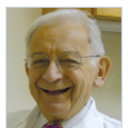Phase I study of indicine N-oxide in patients with advanced cancer.
Keywords
Abstract
Indicine N-oxide is a pyrrolizidine alkaloid isolated from Heliotropium indicum, one of the widely used herbs in Ayurvedic medicine. Thirty-seven patients with solid tumors received the drug: 15 men and 22 women (mean age, 53 years). All had had prior chemotherapy, and 25 had had prior radiotherapy. Eighty-four percent had a performance status of 0-3 (Cancer and Leukemia Group B criteria). The drug was given as a short infusion over 15 minutes and repeated with a median interval of 4 weeks. Doses were escalated from 1 to 9 g/m2. A total of 55 courses were evaluable. Dose-limiting toxic effects were leukopenia and thrombocytopenia, and the toxicity was cumulative with repeated doses. Other toxic effects included nausea and vomiting, anemia, and hepatic dysfunction. The hematologic toxicity tended to be more pronounced in patients with hepatic dysfunction, poor marrow reserve, and heavy prior chemotherapy and radiotherapy. There were no complete or partial responses. One patient with skin melanoma and another with ovarian carcinoma had improvement lasting 2 months. The maximally tolerated dose is 9 g/m2 in our population. A recommended dose for therapeutic study is 7 g/m2. High-risk patients should be started at a dose of 5 g/m2. The treatment may be repeated at 4-week intervals with close monitoring of wbc and platelet counts. Dose reductions may be necessary for repeated courses.


